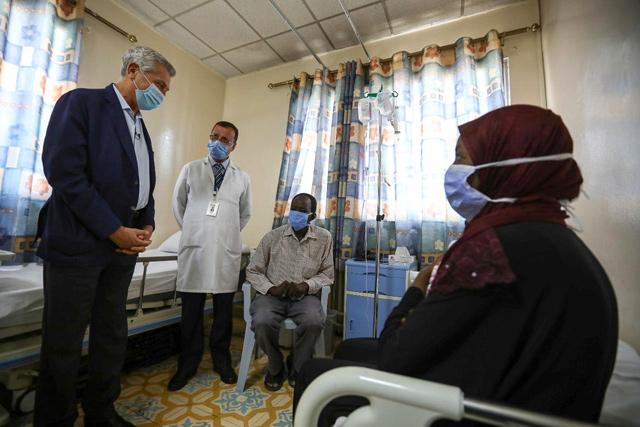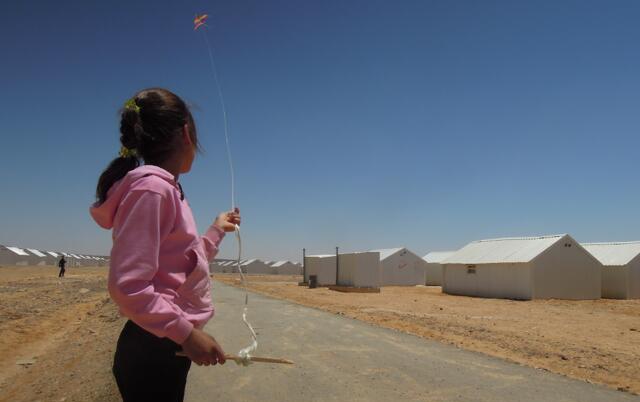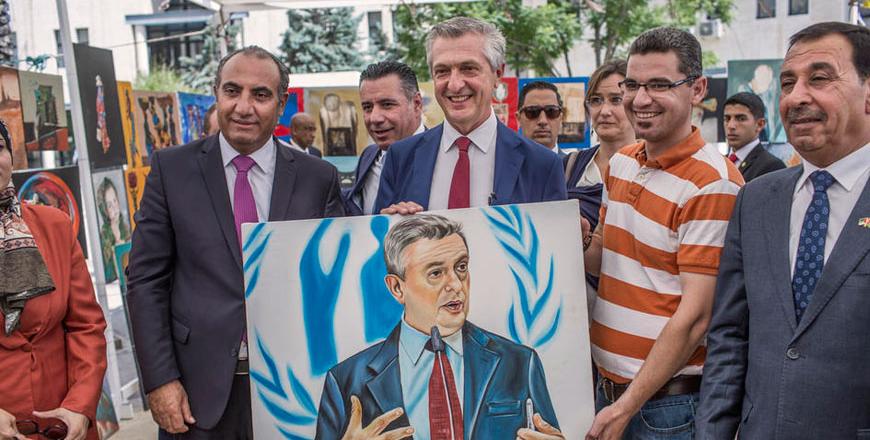You are here
UNHCR chief arrives in Jordan for broader regional mission
By JT - Oct 22,2016 - Last updated at Oct 22,2016
AMMAN — UNHCR High Commissioner Filippo Grandi on Saturday started his second visit to Jordan "as part of a broader mission to the region", the UN agency said in a statement.
During the three-day visit, Grandi is scheduled to meet government officials and refugees living in urban areas, as well as travel to the Azraq camp, where he will have the opportunity to meet with new arrivals, the statement added.
He is expected to hold talks with Deputy Prime Minister and Foreign Minister Nasser Judeh on Sunday.
The UN official is scheduled to also hold a press conference in Amman on Monday.
Grandi is accompanied by Amin Awad, director of the UNHCR Middle East and North Africa Bureau and regional refugee coordinator for the Syrian and Iraqi situations. UNHCR Representative to Jordan Stefano Severe is also accompanying him.
Jordan hosts over 1.3 million Syrians, 656,400 of whom are registered with UNHCR, according to the agency's latest available figures.
The majority of refugees live outside camps and among host communities, while 79,900 currently reside in Zaatari camp and 54,286 live in Azraq camp.
Some 7,370 Syrian refugees currently reside in the Emirati-Jordanian Mreijeb Al Fhoud camp in Zarqa Governorate.
Jordan has topped a list of 10 countries that host more than half of the world’s refugees, according to an Amnesty International report released earlier this month.
Jordan, which has taken in over 2.7 million people, was named as the top refugee-hosting country, followed by Turkey with over 2.5 million refugees, Pakistan with 1.6 million and Lebanon, which hosts over 1.5 million people, Amnesty said in a comprehensive assessment of the refugee crisis titled “Tackling the global refugee crisis: from shirking to sharing responsibility”.
The 10 countries, which collectively shelter 56 per cent of the world’s 21 million refugees, account for less than 2.5 per cent of the global economy, Amnesty said, noting that many of the world’s wealthiest countries “host the fewest and do the least”.
Related Articles
AMMAN — UNHCR, the UN Refugee Agency, continues to ramp up measures to prevent the spread of COVID-19 among Jordan’s refugee population and
The Azraq Refugee Camp, which was officially opened in the beginning of this month, is currently home to more than 6,000 Syrian refugees, according to Andrew Harper, UNHCR representative to Jordan.
AMMAN — United Nations High Commissioner for Refugees Filippo Grandi and Amman Mayor Yousef Shawarbeh on Thursday inaugurated the #WithRefug














